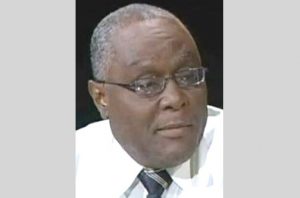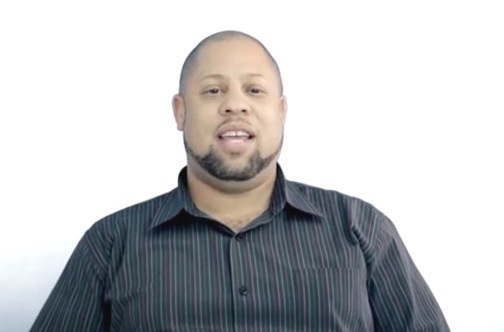LEWIS… the Belize case will serve as a reference in terms of jurisprudence for any case in the rest of the region
GAY rights activists in the Caribbean nation of Belize are celebrating a landmark Supreme Court ruling there which has overturned the country’s anti-homosexuality law, deeming it unconstitutional.

This brought to a head a court battle between openly gay lesbian, gay, bisexual, and transgender (LGBT) rights activist Caleb Orozco and his United Belize Action Movement (UNibam).
It was not clear yesterday if the Belize Government would be appealing the ruling.
“We won on all counts. Speechless. OMG. Speechless,” Unibam tweeted yesterday just after the ruling.
The group was backed in its three-year court battle by former United Kingdom attorney general, Lord Goldmith, and Belize’s former attorney general, Godfrey Smith, against the law which dates back to the days of British rule.
Specifically, Section 53 of the country’s criminal code criminalises “carnal intercourse” between consenting adults of the same sex, stating anyone who has carnal intercourse “against the order of nature with any person or animal” could be jailed for 10 years.
There were suggestions yesterday that the ruling could strengthen efforts to do away with similar laws in several other former British colonies in the Caribbean, including Jamaica.
“The feedback from the community is that the win is a win for the region. We are very proud of Caleb Orozco, who was very bold in his claim to be recognised as an equal citizen in his country,” executive director of Jamaica Forum of Lesbians, All-Sexuals and Gays (J-FLAG), Dane Lewis, said.
He pointed out that the Belize case will serve as a reference in terms of jurisprudence for any case in the rest of the region, especially given the similarities of the laws across the countries.

Reacting to the development, founding member of the Jamaica Coalition for a Healthy Society, Dr Wayne West, said Jamaica needs to be concerned. “But it depends on the judges and the approach they take. I would argue that the judge in the Belize case, like the judges in the United States, have operated in the framework that this buggery law represents some sort of a human rights construct. I disagree with that because homosexuality is abnormal. The American Psychiatric Association ruled that it was not abnormal, but they were pressured to do so,” he told the Jamaica Observer.
He also characterised the turning back of referenda against gay marriages in some states in the US as “a sort of tyranny of the judiciary”.
Lewis said, however: “It is a human right. At the root of it we are all human beings first, with the same dignity and rights that should be recognised by the State. Government’s responsibility is to look out for any minority group”.
Dr West stressed that India’s Supreme Court’s approach was different from the approach taken by the US and now Belize. He said India treats the LGBT movement as a political one and that the judgement had therefore been referred back to the legislature. “The Belizean judge is removing the political component by making that ruling,” he insisted.
Dr West argued, too, that the study that was used to justify the American Psychiatric Association’s position was flawed because it did not look at the substantial issue of the health-related consequences of the behaviour of male homosexuals compared with that of male heterosexuals. “The practice of buggery is what accounts for the high rate of HIV among them. They also have high rates of syphilis and gonorrhoea,” he argued.
In Belize, which has a population of just over 330,000, churches have been on the front line of the resistance against Ozrozo’s legal challenge.
In Jamaica, head of the Jamaica Council of Churches, Rev Gary Harriott, was measured in his response to the ruling.
“It’s not surprising because we see the trend taking place in other places It is clear that that is the direction in which the world in general is going (but) Jamaica has to make a decision as to what it will embrace as the normative way of existence. In Jamaica, there are strong views against same sex relationships and I do not see that changing in the near future. It will be interesting to see how the (buggery) law will interface with people’s positions. There is a strong view in the Jamaican culture, and people are not prepared to embrace that way of life,” he stated.
At least one challenge to Jamaica’s buggery law is now before the local court. Gay rights activist and attorney-at-law Maurice Tomlinson filed a constitutional motion against the Attorney General in 2015 to have the anti-sodomy law revoked in relation to adult consensual sex. Tomlinson has also had an immigration case rejected by the Caribbean Court of Justice. In that suit, Tomlinson said Belize and Trinidad and Tobago’s immigration laws include homosexuals among the category of people who are prohibited from entering these Caribeban Community countries.
The Andrew Holness-led Jamaica Labour Party, which won the February 25 general election, said that the buggery law would be one of several issues that would be put to the people in a referendum. However, there has been no indication since the Government took office in March if it still planned to go that route.
The previous People’s National Party Government had promised, when it took office in 2011, that it would review the law but it remained on the back burner during the life of that Administration.










